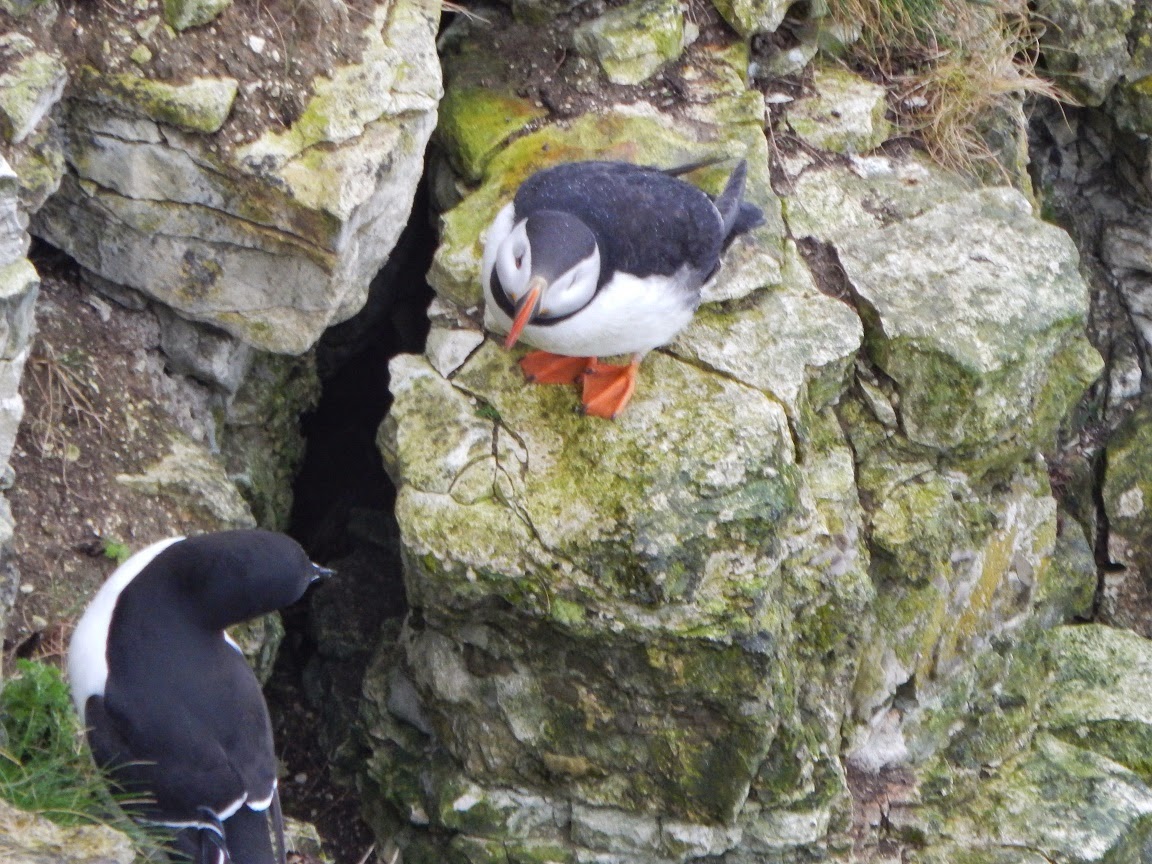 |
| Looking north at Bempton Cliffs |
So, here are the facts:
- There are only 3 places you can see them in England. The Yorkshire coast around Bempton Cliffs, North-West England and South-West England and only when they are breeding, the rest of the time they spend at sea.
 |
| Puffins (Fratercula arctica) |
- Happily, they are found elsewhere in the UK. Both North and South-West Wales and around the coast of Ireland and Scotland.
- When not on land they spend their lives mainly on the Atlantic. Apparently 60% of the world's Puffins live near Iceland.
- Puffins have a number of 'country' names including 'sea parrots' and 'clowns of the sea' because of their bright funny appearance.
- They are great at flying and swimming. They can dive as deep as 60m to hunt herring, sand eels and hake. They use their wings as paddles and their feet as a rudder. In the air they can fly at up to 55mph flapping their little wings at up to 400 beats per minute!
 |
| Oi - that's my hole! |
- They start to breed at age 3 to 5 and they will chose a partner for life. When they come to land they may do a little courtship dance called billing where they rub their beaks together. They will then make a burrow or find a suitable crevice in the rocks where they will build their nest - often they will return to the same one very year.
- They are an Amber Status bird as they are a species of European concern as well and being a localised breeding population. The BTO lists a very exact number of breeding pairs which is 580,799.
- They have a serrated beak that is used to hold onto fish. One Puffin has been recorded with an incredible 83 sand eels in its mouth! Wow!
- They have quite a large typical lifespan of 18 years. But the oldest ever was over twice this at 36 years, 11 months and 22 days. That's pretty old!
 |
| Love these little birds. |
- When they migrate to the sea they drop their colourful beaks and are left with dull, grey ones. They still work the same though.
- They are quite small for a sea bird being 28cm in length, and having only a 55cm wingspan. Both Male and Female Puffins weigh only 400g. Not much compared to some other sea birds.
- This bird is actually one of the World's favourite birds. Probably because of its 'comical appearance'. It does sort of look like a clown as you can see from the pictures.
- Their latin name oddly isn't Puffinus puffinus, that is the name of the Manx Sheerwater, so I don't know what Puffins were called when Linnaeus called them Fratercula arctica.
So, here are some links to some more information:
Hope you enjoyed,
Z.
Amazing photos, Zach! I love Puffins! - Tasha
ReplyDelete60 metres???!!!! Golly.
ReplyDelete